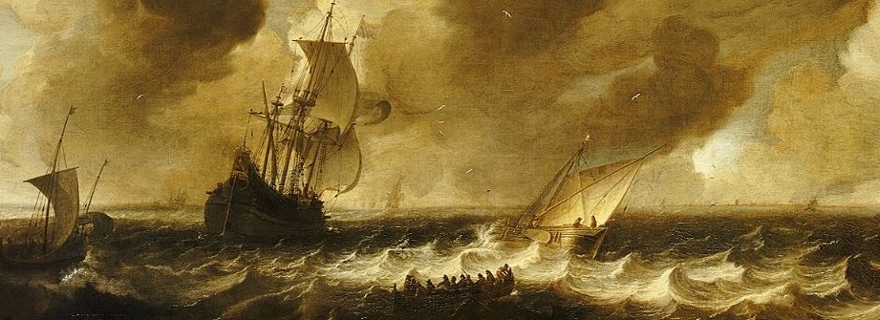
Leiden University, the Faculty of Humanities and the Institute for History are looking for a PhD Position as part of the research programme ‘The Scheurrak SO1 Shipwreck and the Maritime-Cultural Landscape of the Early Modern Netherlands, 1550-1650’
The PhD candidate will carry out research within the framework of the research programme ‘The Scheurrak SO1shipwreck in the maritime-cultural landscape of the early modern Netherlands, 1550-1650’. This interdisciplinary programme contains two PhD projects, and is a cooperation between the Institute for History of the Faculty of Humanities and the Faculty of Archaeology. The programme investigates what one extraordinarily well-preserved shipwreck, excavated between 1989 and 1997, can tell us about the shipping and shipbuilding industries of the early modern Netherlands, and the material culture of the Baltic trade in the period between 1550 and 1650. The programme will contribute to a better understanding of the broader notion of the maritime-cultural landscape of the early modern Netherlands, and is financed by the Cultural Heritage Agency of the Netherlands (Rijksdienst voor het Cultureel Erfgoed).
The project focuses on using objects alongside archival material and other texts to get a better understanding of the everyday maritime history and shipboard culture of the Baltic trade. The grain trade was the most important pillar under the booming maritime economy of the early modern Netherlands in the sixteenth and seventeenth centuries. Scheurrak SO1 is exceptionally well preserved, and many of the objects it carried offer unique material clues to the grassroots of early modern maritime history and culture. The successful candidate will face the challenge of disproving Leora Auslander’s axiom that “historians are, by profession, suspicious of things”. It will run parallel and in conjunction with a PhD research “Scheurrak SO1 and the shipping and shipbuilding industries of the early modern Netherlands, 1550-1650” at the Faculty of Archaeology in Leiden.
Key responsibilities
- Writing a dissertation in English within four years;
- Submitting research results for publication to international peer-reviewed academic journals;
- Presenting papers at conferences and workshops;
- Co-organizing conferences and workshops;
- Contributing to two exhibition catalogues, to be concluded before 1 January 2022;
- Teaching undergraduate courses (in Dutch) in the second and third year of appointment;
- Participating in PhD training courses (Huizinga Institute).
Requirements
- (Research) MA degree in (Historical/Maritime) Archaeology or (Maritime) History. Very good grades are expected, as well an 8 mark or higher for the (Res) MA thesis;
- A keen eye for combining archaeological and historical results;
- Written and oral fluency in Dutch and English;
- Experience in reading 16th/17th century Dutch archival sources and object-related research;
- Willingness to work in an international academic team that aspires to the highest levels of scholarly excellence and societal engagement;
- A problem-focused approach to historical research and proven ability to apply theoretical and comparative frameworks;
- Ability to work both independently and as a team member.
Conditions of employment
The PhD position is full-time (1.0 fte) and for a period of four years (or 0.8 fte for a period of five years). Initially the employee will receive a one-year contract. An extension of three years is possible having received positive evaluations of capabilities and achievements.
Remuneration for a full-time working week will be € 2,325 gross per calendar month in the first year, increasing to € 2,972 gross per calendar month in the fourth year.
An appointment with Leiden University includes a pension build-up and facilitates other benefits such as an annual holiday premium of 8% and an end-of-year premium of 8.3%. For more information, see: https://www.universiteitleiden.nl/en/working-at/job-application-procedure-and-employment-conditions.
Diversity
Leiden University is strongly committed to diversity within its community and especially welcomes applications from members of underrepresented groups.
Employer
Leiden University
The Institute for History is home to a vibrant community of researchers and lecturers with outstanding track records and successful in attracting national and international research grants. Under the label ‘Global Questions, Local Sources’ scholars affiliated to the Institute combine a deep knowledge of global interactions and of specific localities, regions and states in Europe, Asia, Africa and the Americas. They use comparative, connective and entangled approaches and resort to qualitative and quantitative research methodologies. This project is part of the research specialization ‘Colonial and Global History, 1200-present’.
Additional information
Please contact Michiel van Groesen, email m.van.groesen@hum.leidenuniv.nl, for more information, and for a more extensive project description.
